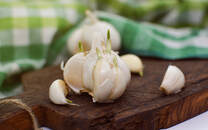 Certain foods pack a whole lot of punch when it comes to their health benefits. These nutrient-dense foods support bodily processes like metabolism, fat-burning, and cellular repair. They have disease-fighting properties, and they're low in calories. In short, these foods are ideal for anyone who wants to boost their health while managing their weight. The following list of foods are easy to work into any eating plan, including vegetarian and vegan diets. Try working them into your own diet more often; your body will thank you. Blueberries Blueberries are rich in antioxidants, which play a vital role in your health. As cells in your body undergo chemical reactions, oxidization occurs and harmful free radicals are produced. Antioxidants help to counter and protect against the cell damage caused by these free radicals. Ultimately, antioxidant protection means less inflammation and a reduced risk of disease. Like all fruits and vegetables, blueberries contain a range of phytonutrients, special nutrients that give plant foods their taste, colour, and flavour. Many of the phytonutrients in blueberries have cancer-preventing properties, while also offering protection against many of the risk factors for heart disease. If you're a fan of smoothies, kick things up a notch by throwing in some blueberries. They'll add to the flavour, colour, and texture. Oats/Oatmeal As a whole grain food, oats contain the entire grain kernel—bran, germ, and endosperm. As a result, they provide more fibre and protein than you'll typically get from highly refined breakfast cereals. Along with providing a mixture of B vitamins, oats provide a variety of essential minerals, including iron, magnesium, zinc, , potassium, manganese, calcium, and copper. The fibre content of whole grains helps aid digestion. It also provides a nice feeling of fullness, so you're less inclined to overeat. A hot bowl of oatmeal is quick and easy to prepare, so it's a great option when you're hungry and looking for something filling to eat right away. Tip: instead of adding sugar to your bowl of oatmeal to sweeten it, mix in some fresh or frozen blueberries instead. It's an appealing combination of flavours, you'll avoid all those excess sugar calories, and you'll get all the extra health benefits that blueberries provide. Kale Kale stands out when it comes to high-nutrient, low-calorie foods. In fact, kale is one of the most nutrient-dense foods available in terms of it's nutrient to calorie ratio. One cup of cooked kale has less than 40 calories, but it's an excellent source of vitamins A, K, and C; it's also an good source of calcium. On top of that, kale contains lutein and zeaxanthin, key phytonutrients that play a role in supporting healthy vision. These phytonutrients may offer protection from eye diseases such as cataracts and age-related macular degeneration.  Garlic If you're looking for a food proven to support and enhance immune function, look no further than garlic. Known as the "king of herbs", this miracle food has been studied extensively, and its antimicrobial properties are well-documented. In some studies, garlic has been shown to be just as effective as prescription antibiotics. But that's not all; garlic has even proven effective against some resistant bacteria that no longer respond to prescription antibiotics! Garlic's strong odour comes from the mineral sulfur, which promotes elimination of toxins from the blood, lymph, and body. Garlic has also been shown to help improve circulation and lower blood pressure. A few cloves of garlic will enhance the taste of just about any meal, and you'll be doing your body a world of good. Tip: the robust flavours of garlic and kale go well together, for the ultimate power dish! Legumes: Lentils, Beans, and Peas There's a lot you can do with this diverse and flexible food group. Lentils, beans, and peas can easily serve as the main course in a hearty soup or stew, but they work just as well in salads and side dishes. They're tasty, filling, low in fat, a good source of fibre, and packed with vitamins and minerals. Lentils, for example, are surprisingly high in iron, and also rich in calcium, potassium, and phosphorous—minerals which all play an important role in maintaining strong bones. Legumes are a great protein substitute for anyone who wants an alternative to animal protein. Tip: to ensure that you get all essential amino acids at optimum levels, combine legumes with grains to form a "complete" protein, e.g.: rice and peas.
0 Comments
Leave a Reply. |
Categories
All
|
 RSS Feed
RSS Feed